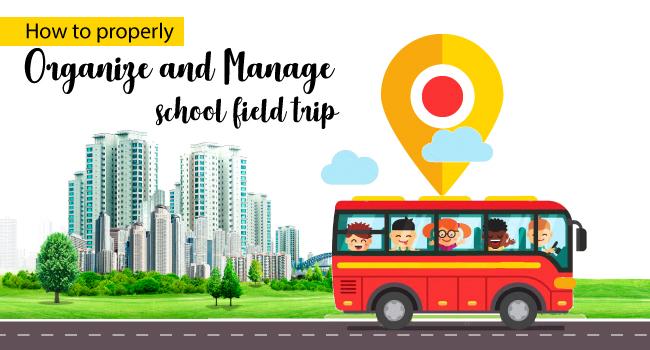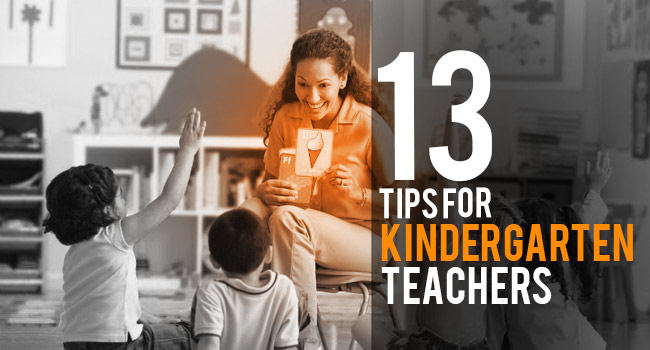Planning a field trip and knowing exactly how to go about doing it is an essential skill. The idea of field trips works excellently for both the teachers and students.
While the idea is to take students out of the classroom and help them experience some real-life learning, it is also beneficial for teachers as they got to know a student’s interest.
It is no wonder that school boards these days have become increasingly cautious about allowing field trips. If planned well then a field trip can indeed be a memorable and meaningful experience for everyone involved!
Planning and Organizing a Field Trip
Some of the below mentioned stages can be a good guide on how to organize and plan a school trip:
-
Decide where to go and think about places that enhance and reinforce your curriculum goals.
- Ask your administrator and jot some notes before presenting the idea. Tell her why you want to go, where you want to go, what dates you are thinking of, and what the cost will be.
- Arrange for transportation and decide how you are going to get the little kids there and back.
- Decide on where and when you will stop for meals. Some of the common options available are either everyone including children bringing their own lunch, or stopping at a restaurant or café on or off sight.
- Make a plan and understand the time that each activity takes to perform keeping the interest and attention span of students in mind.
- Arrange for supervision depending on the number of students going for the trip and number of adults needed in order to handle the children. This also varies depending on the behaviour of age and maturity of the students.
- Create a permission form that includes all the necessary details about the field trip, like the date, time, venue, pick-up, drop-off, food to be carried, money to be carried, dress code if any and other such details that is necessary for parents to know before they sign and give their children the permission.
- Tie in the field trip with the student’s curriculum by deciding the kind of assignment and learning that can be done on the trip. This usually requires pre-learning and background reading to be done by the teachers.
Tips for Field Trip Behavior Management
While planning a field trip, teachers are usually worried about kid’s behaviour outside the school premises as they don’t how they are likely to behave outside the school setting. Some tips that teachers must remember while planning for a school field trip are:
- If some students have significant trouble meeting the behaviour expectations on a day-to-day basis, they should hold a frank discussion regarding the same with the parents.
- Always think of an alternative plan for students that you think would not be able to cope with the trip circumstances.
- Tell students they are under observation a week before the trip and reward the ones that behave appropriately as this will also give them an insight about the kind of behaviour that is expected from them.
- Keep into consideration the medication schedule of kids from their parents
- Hold an open discussion with students about the purpose of the trip and expectations of their roles and responsibilities on the same.
- Consider keeping a low teacher-student ratio to reduce chances of mishaps
Field Trip Safety Tips for Teachers
While taking children on a field trip, teachers have a huge responsibility of their safety. And as children are usually not so responsible and old enough to be at their best behaviours, teachers must keep a tab of the below tips as they are helpful in ensuring student safety:
- Make students get their parents’ signature on a no-objection form which gives the school permission to take children on a field trip
- Divide children into groups and assign a monitor to be able to give equal attention to all students and avoid mishaps.
- Inform children about the place they are going to visit and prepare them about what they are going to be doing there.
- Educate children about the safety tips for the trip and let them know who they are supposed to reach out to when they need any help.
- Let the students know they are going to be divided into groups and also let them know who they are going to be with so that they can be comfortable around the people.
- Choose a safe transport. Instead of hiring private vehicles, school buses that children travel are safer and more preferred during field trips.
- Carry a first aid kit and also water and juices in case to avoid students from feeling dehydrated and low on energy
Here's a video of how teachers can able to track students while on a school field trip or an excursion
Field Trip Rules for Elementary School Students
For students of elementary school going for a field trip, certain rules are mandatory that make trip a pleasurable experience for all like:
- Be along with your group at all times
- Respect what the monitor says and obey her commands
- Help keep noise and confusion at a minimum
- Know who to talk about any problems that you are facing
- Help others in your group
- Take care of your belongings and do not indulge in any inappropriate behaviour while on the trip
- Discuss if there is any problem with the teacher
- Abstain from using any foul language or showing any disrespect
Field Trip Rules for Middle School Students
Just like students of elementary school, it is very essential for students of middle school to follow rules and regulations as the middle school usually have trips that are for more than just a day and usually are outside the city.
This makes it more important for them to abide by the rules to ensure their safety. The students must remember to:
- Stick to the instructions given by teachers and chaperones courteously and respectfully
- Keep the transport vehicle, hostel or hotel room clean at all times
- Not go beyond the mentioned boundaries of the place they are staying at
- Strictly adhere to the time lines and report on time, as suggested by teachers.
- Carry appropriate clothes according to the weather and the place
- Not ride any form of public transportation during their free time
- Make no excessive noise in hotel or the hostel through music or shouting
- Follow the buddy system and leave no student alone in his or her hotel room
Impact of Field Trip on the School Environment
A field trip is one of the best tools that we can use to provide every student with real-world experiences.
By taking children out once in a while where they begin to see that what they learn within the classroom walls, schools promote a more efficient way of learning for the students.
It helps them solve the problems they see in the world around them and can have a direct impact on who they become as people. Field trips make learning relatable and faster for students making the school environment more lively and interactive.
Therefore, encouraging school trips is promoting a better learning program for schools and also enabling a healthy development amongst students making them more self-aware and confident.

